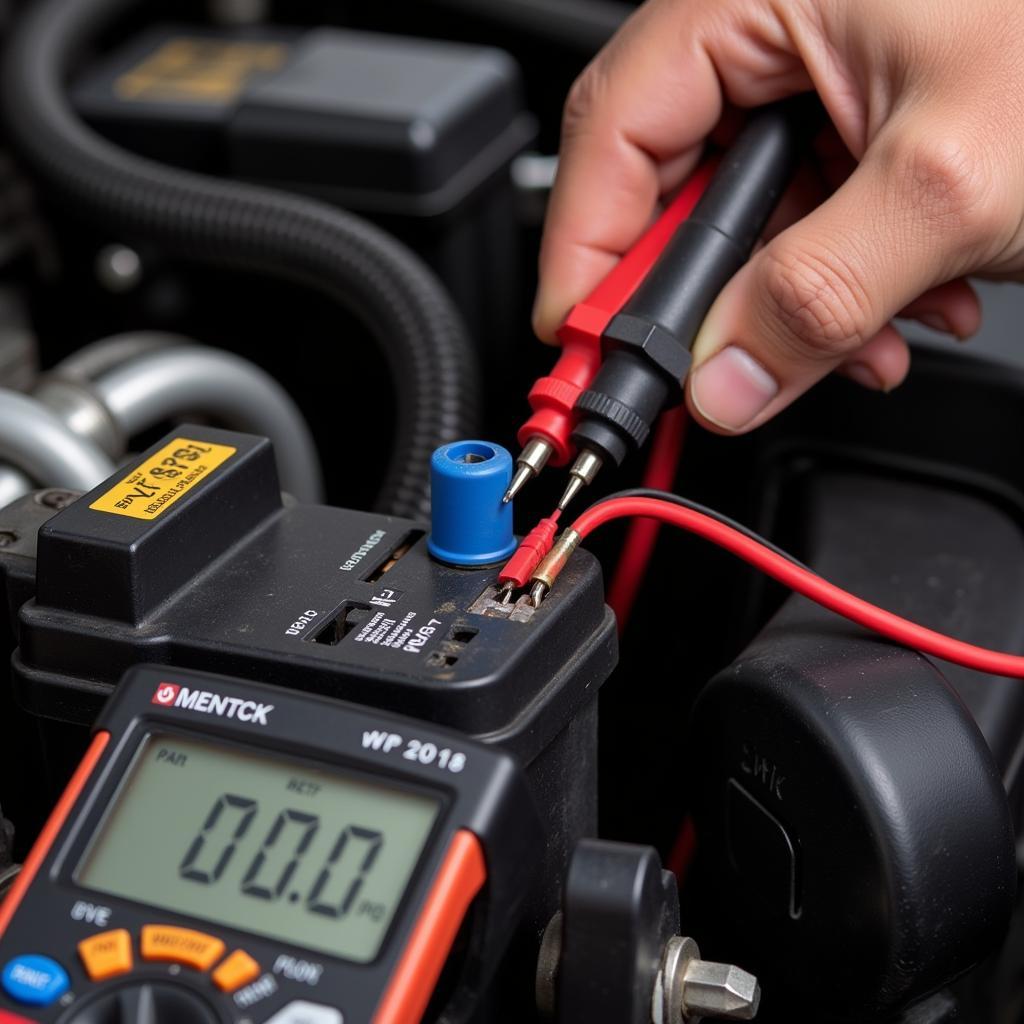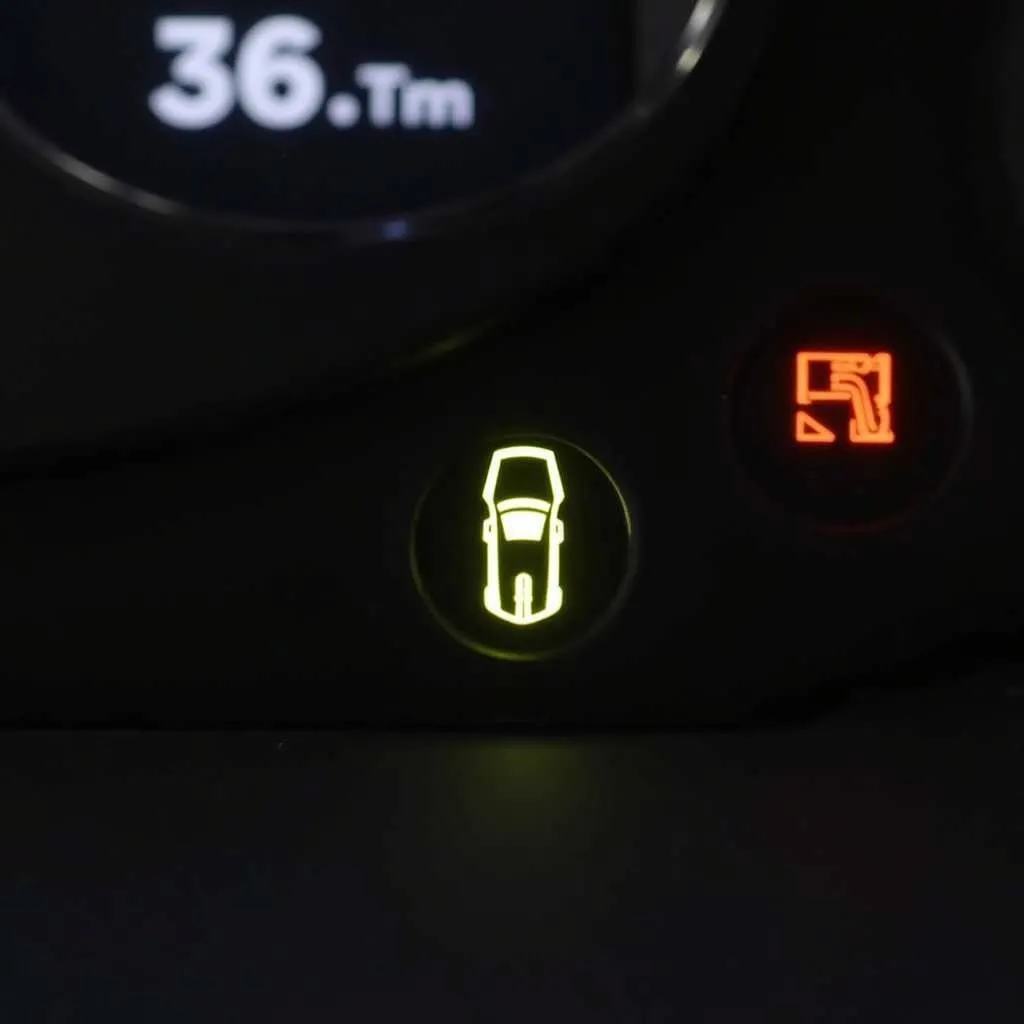A car battery draining while driving can be a frustrating and potentially dangerous situation. Instead of providing power, a failing battery relies on the alternator, putting extra strain on the charging system and potentially leaving you stranded. This article will explore the common causes of this issue, provide troubleshooting tips, and suggest solutions to get you back on the road safely. my car battery is draining fast
Why is My Car Battery Draining While Driving?
Several culprits can lead to a car battery draining while driving, ranging from simple issues like loose connections to more complex problems within the electrical system. A faulty alternator is a primary suspect, as it’s responsible for recharging the battery while the engine is running. If it’s not functioning correctly, the battery won’t receive the charge it needs. Other potential causes include a bad voltage regulator, corroded battery terminals, or even a parasitic drain, where an electrical component continues to draw power even when the car is off. Identifying the exact cause is the first step towards a solution.
Common Culprits Behind a Draining Battery
Understanding the various components involved can help pinpoint the problem. Here are some common culprits:
- Faulty Alternator: This is the most common cause. The alternator generates electricity to power the car’s electrical systems and recharge the battery. A failing alternator can’t keep up with the demand, leading to a drained battery.
- Bad Voltage Regulator: The voltage regulator controls the alternator’s output. If it malfunctions, it can overcharge or undercharge the battery, eventually leading to failure.
- Corroded Battery Terminals: Corrosion on the battery terminals can disrupt the flow of electricity, preventing the battery from charging properly.
- Parasitic Drain: This occurs when an electrical component continues to draw power even when the car is off. Examples include interior lights, faulty radios, or even aftermarket accessories.
 Alternator Test on a Car Battery
Alternator Test on a Car Battery
Troubleshooting a Car Battery Draining While Driving
Before heading to a mechanic, you can perform some basic troubleshooting steps:
- Check the Battery Terminals: Inspect the terminals for corrosion. Clean them with a wire brush and baking soda solution if necessary.
- Test the Alternator: Use a multimeter to check the alternator’s voltage output. A reading between 13.5 and 14.5 volts indicates a healthy alternator.
- Look for Parasitic Drains: With the engine off and all accessories turned off, use a multimeter to check for current draw. A small draw is normal, but a significant draw indicates a parasitic drain.
car battery discharging very fast
How to Fix a Car Battery Draining While Driving
Once you’ve identified the cause, you can take steps to fix the problem. This may involve:
- Replacing the Alternator: If the alternator is faulty, it needs to be replaced.
- Replacing the Voltage Regulator: A bad voltage regulator needs to be replaced.
- Cleaning or Replacing Battery Terminals: Clean corroded terminals or replace them if they are severely damaged.
- Identifying and Fixing the Parasitic Drain: This can involve checking fuses, relays, and wiring to find the component drawing excessive power.
What happens if my battery dies while driving?
If your battery dies while driving, you’ll likely experience dimming headlights, a flickering dashboard, and difficulty steering or braking. If this happens, safely pull over to the side of the road and call for assistance. if my battery dies while driving
“A dying battery while driving is a serious safety concern,” warns automotive electrical expert, John Smith, from Smith Automotive Solutions. “Don’t ignore the warning signs. Address the issue immediately to prevent getting stranded.”
Preventing Future Battery Drain Issues
Preventing future battery drain issues involves regular maintenance and checks:
- Regular Battery Testing: Have your battery tested regularly, especially in extreme temperatures.
- Clean Battery Terminals: Keep the battery terminals clean and free of corrosion.
- Limit Accessory Use: Avoid excessive use of accessories, especially when the engine is off.
Conclusion
A car battery draining while driving indicates an underlying electrical problem that needs to be addressed promptly. By understanding the potential causes and following the troubleshooting steps outlined in this article, you can diagnose the issue and take appropriate action to fix it. Regular maintenance and checks can help prevent future battery drain issues, ensuring a safe and reliable driving experience. Remember to prioritize your safety and consult with a qualified mechanic if you are unsure about any of the steps involved.
FAQ
- Can a bad alternator drain my battery while driving? Yes, a faulty alternator is the most common cause of a car battery draining while driving.
- How can I test my car’s alternator? You can test your alternator using a multimeter to check its voltage output.
- What is a parasitic drain? A parasitic drain occurs when an electrical component draws power even when the car is off.
- How can I prevent my car battery from draining? Regular maintenance, including battery testing and cleaning the terminals, can help prevent battery drain.
- What should I do if my battery dies while driving? Safely pull over to the side of the road and call for assistance.
- Can extreme temperatures affect my car battery? Yes, extreme temperatures can significantly impact battery performance and lifespan.
- How often should I have my car battery tested? It’s recommended to have your battery tested every six months, especially in areas with extreme weather conditions.

